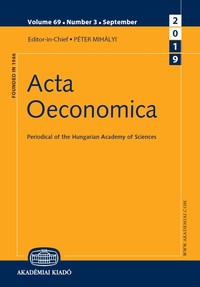Fialová, Kamila, Beláňová, Andrea. 2020. „Hidden religious aspects of job satisfaction and work attitudes: The differences between Eastern and Western Europe“. Acta Oeconomica. 70 (4): 593–613. Available from: https://doi.org/10.1556/032.2020.00038
This paper examines the links between religion and job satisfaction. Its concern is to compare Eastern and Western Europe. We use the 2015 International Social Survey Programme (ISSP) data covering both non-religious individuals and individuals affiliated to a religious denomination. While the Western European countries generally report significantly higher levels of job satisfaction compared to their Eastern counterparts, we test the hypothesis that religion also shows differentiated effects on job satisfaction and work attitudes. Our results indicate that religion has no significant effect on job satisfaction in either of the regions. In the West, religious affiliation has an influence on a larger variety of work attitude measurements compared to those in the East. In both regions, workers who regularly attend religious services would enjoy work significantly more even if they did not need money, consider high income as less important, and consider helping other people, contact with other people, and having a job useful to society as more important.
Authors
- PhDr. Kamila Fialová, Ph.D.
- PhDr. Andrea Beláňová, Ph.D.
Department
Topics
Economy, European Union, Religion and religiosity, Work
